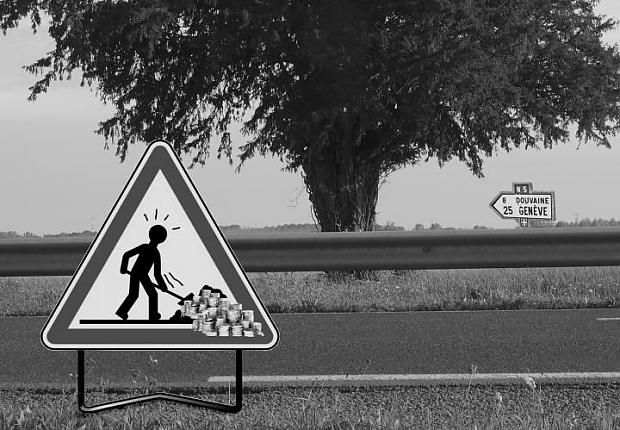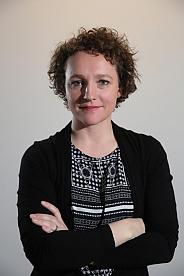For the wealthy too, “simply paying your taxes must become the norm”
For the wealthy too, “simply paying your taxes must become the norm”

A special committee of the Netherlands Parliament has been investigating tax evasion by wealthy Dutch people and the constructions which enable moneys to be passed through our country. SP Member of Parliament Renske Leijten was a member of the special committee and expresses the view that, in addition to stricter regulations and improved surveillance, what’s needed is a fundamental discussion of the country’s system of taxation. Below, she speaks to Rob Janssen.
The Panama Papers last year revealed the global elite’s appalling tax practices. Multinationals and the super-rich have for decades evaded, by both legal and illegal methods (known as ‘avoidance’ and ‘evasion’ respectively), billions in taxes. The prominent role of the Netherlands as a sort of turntable for mailbox companies to redirect and divert funds is well-known. This was the thinking behind the SP’s move, immediately the Panama Papers were revealed, to initiate a Parliamentary Enquiry, though in the end the decision was taken by Parliament as a whole to hold a Parliamentary Examination, a somewhat lower status procedure but more important than a mere hearing. Twenty-seven experts and witnesses gave testimony at the Examination, with the focus on the Netherlands’ role as a conduit for private money being moved abroad.
 The SP was represented on the Parliamentary Examination Committee on Fiscal Constructions, as it was known, by Renske Leijten, the party’s spokeswoman on financial affairs. “What we noticed in examining the witnesses was that within the law a great deal is possible,” she says.” If you have sufficient money you can buy advice and employ forms of ownership which enable you to pay as little as possible in tax. In other words, if you’ve got money you can ensure that it doesn’t dwindle as a result of taxation. In my eyes that’s dishonest, but it’s inherent in our system of taxation. People who work and have a small savings account can’t keep it out of sight from the revenue services, certainly less so than can someone who has say around €5 million stashed away in the bank. It’s often said by this latter group that they keep their money abroad, because if they didn’t they’d find themselves on the Quote 500, a website which covers the activities of the richest people in the Netherlands, and which many people are anxious to avoid appearing in. Yet there are other ways to achieve this. You can put your money into a Dutch Foundation and thereby avoid being listed as its owner, hiding it from the media but not from the revenue service. So keeping you money outside the country is not justified by concerns for privacy. You can register a construction with the revenue service and hand over your taxes. However, should the revenue service suspect that someone is evading their taxes, it becomes extraordinarily prove this in the face of foreign constructions. In a sector where the motto is ‘everything is permitted unless it’s forbidden by law’, it would be a good idea to ban the use of foreign countries to import wealth. This would reverse the burden of proof and no prosecution would follow if a person can show that the transfer of wealth was completely understandable for family reasons or because they had a firm in another country.”
The SP was represented on the Parliamentary Examination Committee on Fiscal Constructions, as it was known, by Renske Leijten, the party’s spokeswoman on financial affairs. “What we noticed in examining the witnesses was that within the law a great deal is possible,” she says.” If you have sufficient money you can buy advice and employ forms of ownership which enable you to pay as little as possible in tax. In other words, if you’ve got money you can ensure that it doesn’t dwindle as a result of taxation. In my eyes that’s dishonest, but it’s inherent in our system of taxation. People who work and have a small savings account can’t keep it out of sight from the revenue services, certainly less so than can someone who has say around €5 million stashed away in the bank. It’s often said by this latter group that they keep their money abroad, because if they didn’t they’d find themselves on the Quote 500, a website which covers the activities of the richest people in the Netherlands, and which many people are anxious to avoid appearing in. Yet there are other ways to achieve this. You can put your money into a Dutch Foundation and thereby avoid being listed as its owner, hiding it from the media but not from the revenue service. So keeping you money outside the country is not justified by concerns for privacy. You can register a construction with the revenue service and hand over your taxes. However, should the revenue service suspect that someone is evading their taxes, it becomes extraordinarily prove this in the face of foreign constructions. In a sector where the motto is ‘everything is permitted unless it’s forbidden by law’, it would be a good idea to ban the use of foreign countries to import wealth. This would reverse the burden of proof and no prosecution would follow if a person can show that the transfer of wealth was completely understandable for family reasons or because they had a firm in another country.”
Four trillion
The committee’s other point of focus was the way in which the Netherlands’ favourable tax climate has made the country a conduit for capital and a turntable for mailbox companies. Research has shown that an annual four trillion euros circulates on this turntable. “What we are seeing here is that international corporations use the Netherlands to keep the tax they pay on their profits low” says Leijten. “In an empty mailbox company, managed via what’s known as the trust sector, profits are classified in such a way as to enable them to be passed on favourably to the parent firm abroad. This is used for instance by mining concerns in Africa extracting raw materials from underground. The profits are not paid in the African country in question, but parked in the Netherlands, then made over to the parent company in the US or Canada at favourable tax rates. In this way more money is taken out of Africa than is paid in development aid! So for that reason too I think it’s high time that we ensured that our country stops being the transit port for this four trillion. And if the Netherlands is to play such a role, it must do so with clean hands. Then we can aid poor countries.”
But haven’t all sorts of measures been taken by the EU and others to put an end to this kind of tax evasion? “That’s right,” agrees Leijten, “but every time, it turns out that the Netherlands finds all kinds of surreptitious routes via which it can get round such measures.” That’s what has earned our country the stamp of ‘tax haven’.
Renske Leijten thinks that the committee’s findings mean that the time is ripe for a “fundamental discussion about what we actually want to achieve with our taxation system. It’s a question of simply making sure that taxes are paid. That’s better for the development of all countries, including the Netherlands,”
The committee’s findings will be presented to Parliament, which will debate what measures to take once a new government is in place.
The original Dutch version of this article was published in the Socialist Party monthly magazine "Tribune" of July 2017
- See also:
- World
